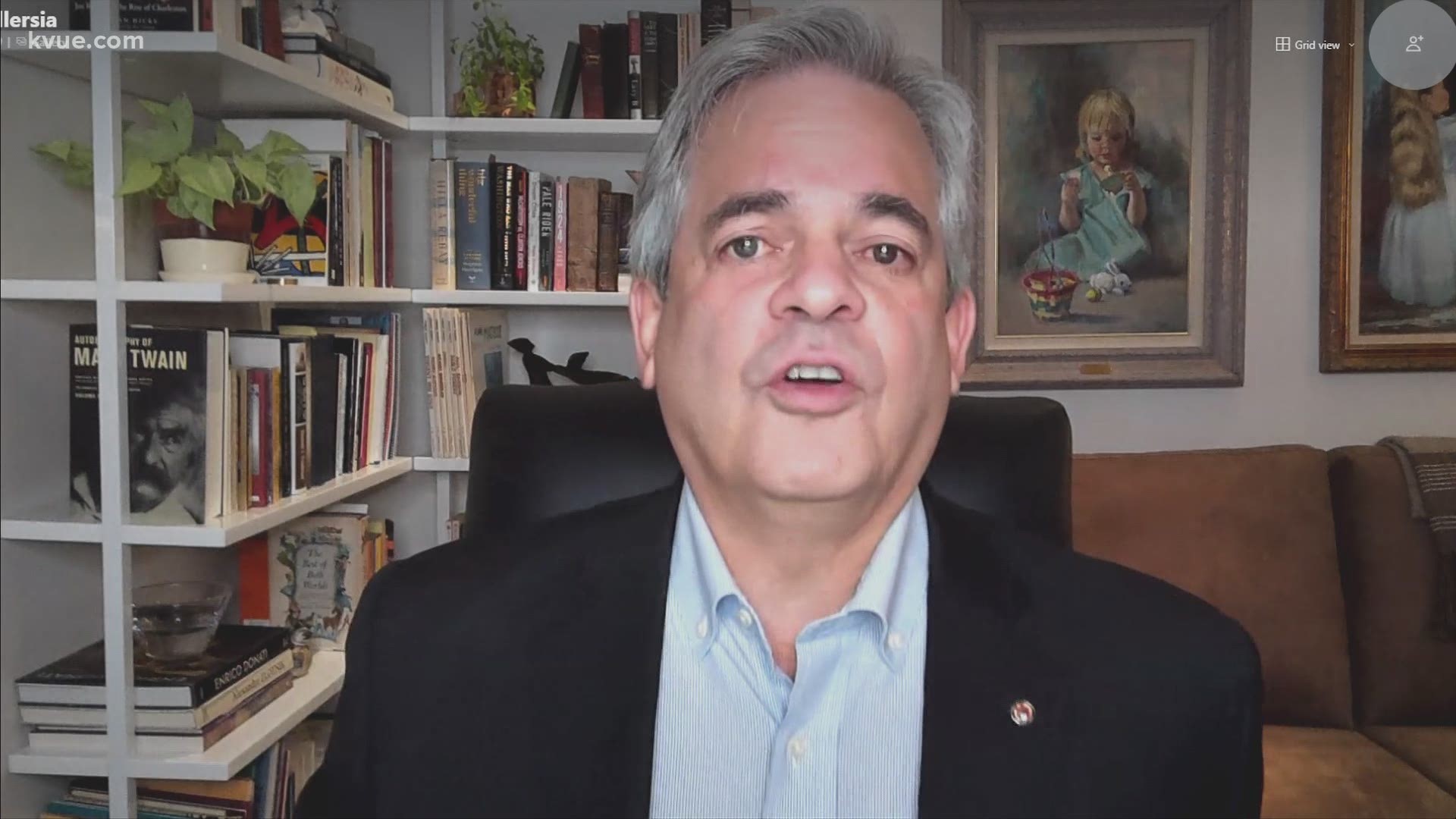AUSTIN, Texas — Starting Monday, all Texas adults over the age of 16 can now sign up to get a shot, which is welcome news in the fight against COVID-19.
Austin Mayor Steve Adler joined KVUE on Monday morning to talk more about the vaccine rollout and other things happening in the capital city.
Yvonne Nava: When it comes to the virus, the numbers are looking encouraging. Mayor, where do we stand now in terms of cases and trends and hospital admissions?
Adler: Cases are generally coming down, admissions generally coming down. We've reached a plateau, so we need to push through that and continue to drop the numbers, which is why it's important to wear masks.
You know, our community pulling together has resulted in a mortality rate in Austin that is less than half of the state average, less than half of the national average. And that's because we look out for each other here. Keep wearing your mask, drive the numbers down. We're headed in the right direction.
Nava: Speaking of masks, on Friday, a judge sided with the City of Austin denying a request by Texas Attorney General Ken Paxton to force the capital city to lift its mask mandate. This push and pull between our city and state governments is likely far from over. But what does that ruling by the judge mean to you? And what's the plan moving forward when Paxton appeals?
Adler: You know, every day we can keep the mandate in place is a victory for us. We kept it in place over spring break. We'll see the benefit of that. It sends a clear message that masking is important, it's effective, it works and it's still necessary. But, ultimately, we don't wear masks because of anything that a judge says or the governor says or I say. We wear masks because they work and it's the best way to protect one another. I anticipate that the attorney general will appeal. When he does, we'll defend. Every day we can keep the mandate in place is a victory for our community.
Nava: Well, city council passed some measures last week to take a look at what went wrong and what the city could have done better in regard to the winter storms. So looking back, what were some missteps and what are the things that we can all do to be more prepared in the future?
Adler: My hope is that there's a lot we can learn from this. We still have a lot of questions that haven't been answered. We need to make sure this doesn't happen again, that we need to learn how to do things better. So, last week, we talked to the manager about him doing his staff-after-crisis disaster report. The council has asked the city auditor to give us an independent analysis. The whole council is going to be meeting in public hearings and also council committees. So it's going to be a very public, open, transparent process. And we're going to be asking the questions that everybody has.
Nava: As far as Austin's approach to our homelessness issue, in your words, you said it was not good enough. You participated in a summit to address unsheltered homelessness in Austin. I know community groups were there. Local leaders were able to brainstorm. Can you tell us a little bit more about the discussions taking place and how close are we to finding solutions, but more importantly, being able to implement those solutions?
Adler: I think we're real close. You know, the summit that started last week and is going on for another two weeks is bringing together for the very first time everyone in the community. So the Chamber of Commerce, the Downtown Austin Alliance and ECHO, but also the Austin Justice Coalition. Everybody in the same room pointed in the same direction. We can't go backwards to failed policies, but we have to do a better job of closing these encampments. And that's what I think is coming out of this summit right now. And that, combined with our city's and our county's share of that $1.9 trillion coming out of Washington, D.C., puts us in a position right now to really follow a new direction that will meet the challenge of homelessness. And I am excited because it's about time.
Nava: Let's talk quickly about Proposition F, a ballot measure that would change the city's form of government. If approved by voters, the proposition would eliminate the city manager position and make the mayor position, your position, more powerful. At least nine council members are against it, some calling it undemocratic. Do you think this change could lead to a more functional form of government for the city?
Adler: You know, I haven't taken a public position on this because I'm afraid people will think it's about me when, in reality, it wouldn't come into effect until after I leave office. So I'm going to stay focused on the homelessness issue because that's my number one priority.
PEOPLE ARE ALSO READING:

